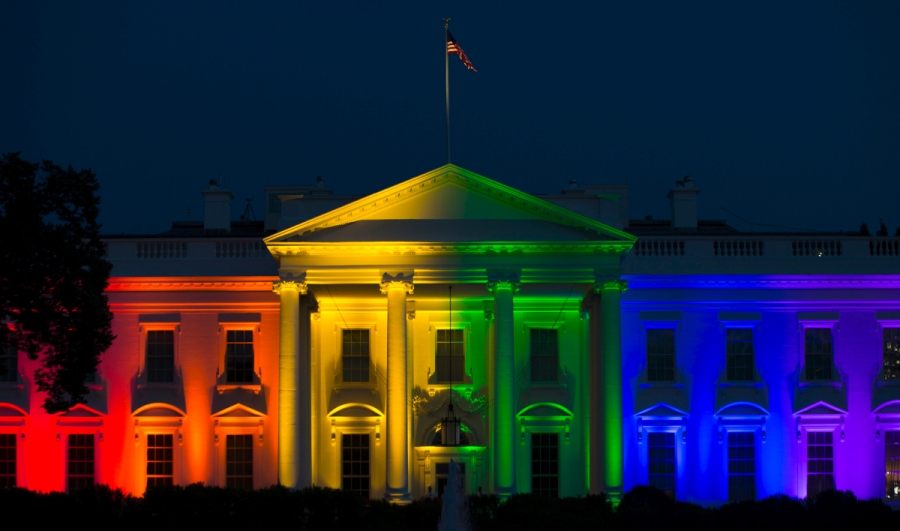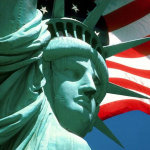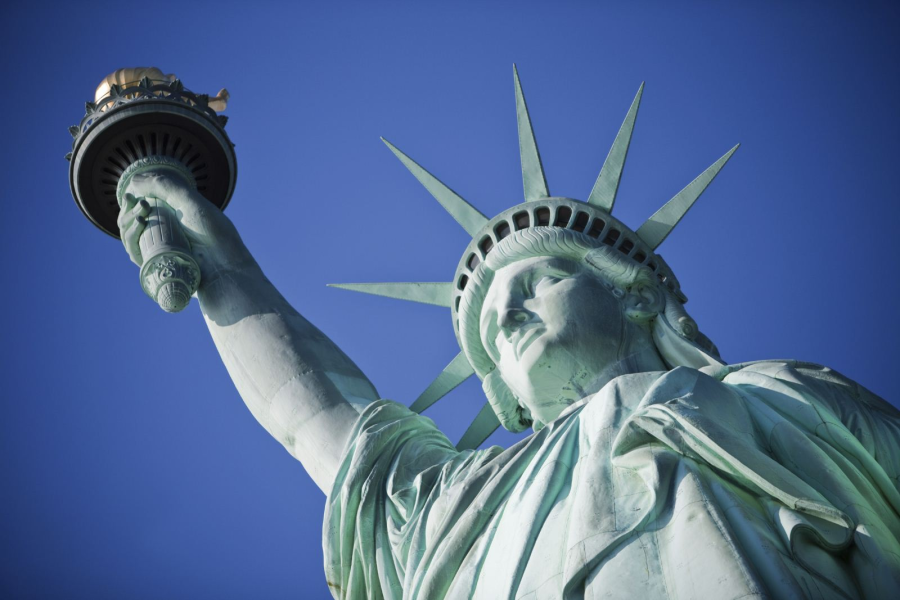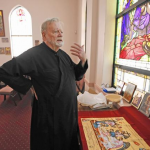
Deprecated: trim(): Passing null to parameter #1 ($string) of type string is deprecated in /home/aoiusa/public_html/wp-content/plugins/sexybookmarks/public.php on line 388
Deprecated: trim(): Passing null to parameter #1 ($string) of type string is deprecated in /home/aoiusa/public_html/wp-content/plugins/sexybookmarks/public.php on line 394
Deprecated: trim(): Passing null to parameter #1 ($string) of type string is deprecated in /home/aoiusa/public_html/wp-content/plugins/sexybookmarks/public.php on line 400
Don’t fall for the ‘marriage equality’ sales pitch. It’s a deception.
Source: The Federalist
By Stella Morabito
Same-sex marriage is a notion that contains within itself the seeds of its own destruction. I doubt many have thought this through, with the ironic exception of the elites who have been pushing the agenda the hardest.
Most people are weary of it all and going along to get along, especially since dissent has become such a socially expensive proposition, almost overnight. That in itself should deeply concern anyone who values freedom of expression.
Sure, true believers scattered across the land really do think the entire project ends with allowing same-sex couples to marry. Most persist in the blind faith that a federal ban on the standard definition of marriage will have no negative effect on family autonomy and privacy. That’s a pipe dream.
The same-sex marriage agenda is more like a magic bullet with a trajectory that will abolish civil marriage for everyone, and in doing so, will embed central planning into American life. And that, my friends, is the whole point of it. Along with Obamacare, net neutrality, and Common Core, genderless marriage is a blueprint for regulating life, particularly family life.
The Rainbow’s Arc
Unintended consequences usually come about when we are ignorant or maybe lazy about a course of action. But we usually crash land after following an arc of logic, which in this case has gone largely undiscerned and unaddressed in the public square.
Americans are in a fog about how marriage equality will lead to more central planning and thought policing. This is partly because the media and Hollywood only provide slogans to regurgitate while academics and judges push politically correct speech codes to obey.
Let’s explore the fallout of that arc of faulty logic. Included below are some 15 of the gaping holes in the “marriage equality” reasoning that Americans have not thought through.
1. The Kids Are Not Alright
In March, six adult children from LGBT households filed amicus briefs opposing genderless marriage: see here, here, and here. You can read testimonials of many such children in a newly released anthology by Robert Oscar Lopez and Rivka Edelman, “Jephthah’s Daughters: Innocent Casualties in the War for Family ‘Equality.’”
Whenever a parent is missing—for whatever reason—a child feels a primal wound. In this respect, parents belong to their children more than children belong to their parents. We ought to recognize that privileges of civil marriage should ultimately exist for children, not for adults. Children have the right to know their origins and not to be treated as commodities. Same-sex parenting—which increasingly involves human trafficking, particularly with artificial reproductive technologies (see number eight)—deliberately deprives a child of a mother and/or a father. The “marriage equality” agenda requires that such children bear that burden alone and repress their primal wound in silence.
2. Love’s Got Nothing to Do with State Interest in Marriage
“Love is love” is an empty slogan when it comes to state interest in marriage. How two people feel about one another is none of the state’s business. The state’s interest is limited to the heterosexual union because that’s the only union that produces the state’s citizenry.
And it still is, whether the union happens traditionally or in a petri dish. Each and every one of us—equally and without exception—only exists through the heterosexual union. In any free and functioning society, there is a state interest in encouraging as much as possible those who sire and bear us to be responsible for raising us.
3. The Infertility Canard
Just as the state has no litmus test for feelings or motives, it has no litmus test for any heterosexual couple who do not produce children because of intent, infertility, or age. Conflating same-sex couples with childless or elderly heterosexual couples seems to be the fallacy of composition: claiming something must be true of the whole because it’s true of some part of the whole.
Sorry, but the heterosexual union, no matter how it takes place, is the only way any citizen exists, including intersex and transgender citizens. So recognizing that union without prejudice remains the only reason for state interest in marriage.
4. Same-Sex Marriage Will Settle Nothing
It’s only the starting point for a glut of philosophically related demands for state recognition and approval of many other types of relationships, including polygamy and incest. This will mark the sudden beginning of an even more sudden end for same-sex marriage, not so much because those other types of relationships prove immoral, but because they serve as exhibits for the argument that all civil marriage—including same-sex marriage—is unsustainable and discriminatory.
5. ‘Marriage Equality’ Opens the Path for ‘Unmarried Equality’
There’s a movement waiting in the wings called “unmarried equality,” which argues that all civil marriage should be abolished because it privileges married people over singles. If same-sex marriage becomes the law of the land, it will set the precedent for abolishing marriage. Far from getting the state out of the marriage business, it will invite the state to regulate all familial relationships, particularly those with children. Once the state doesn’t have to recognize your marriage, it is freer to treat your spouse and children as strangers to you.
6. Transgenderism Is a Big Part of This Package
Americans have not thought through the implications of same-sex marriage and how it is logically a big step to erasing all sex distinctions in law. If we become legally sexless, the implications are vast when it comes to how or whether the state will recognize family relationships such as mother, father, son, or daughter. There’s already a push to eliminate sex identification at birth, which could mean removing sex distinctions on birth certificates. This will seem logical because all gender identity non-discrimination laws already presume that everybody’s sex is something arbitrarily “assigned” to them at birth.
7. It’s an Open Invitation for State Licensing of Parents
If we allow the abolition of sex distinctions and civil marriage—both of which are written into the social DNA of same-sex marriage—we logically allow the state to gain greater control over deciding familial relationships. Civil marriage so far has presumed that a child born into a heterosexual union has the default right to be raised by his biological parents together. How can the presumption of maternity or paternity survive in a legal system that recognizes neither sex distinctions nor a marriage relationship?
The bellwethers are out there. MSNBC anchor Melissa Harris-Perry did a “Forward” spot for the Obama administration in which she stated that all children “belong” to communities, not families. Another friend of the Obama administration, gender legal theorist Martha Fineman, calls for state-subsidized care-giving units to replace marriage and the family.
8. Same-Sex Marriage Commodifies Children
You may think artificial reproductive technologies (ART) are fine as an avenue to obtain children for those unable to conceive. But in the context of genderless marriage, ART ramps up the potential for human trafficking. Check anonymousus.com to read testimonies of grief and loss felt by children who were conceived in this manner. Check the movies “Eggsploitation” and “Breeders” by the Center for Bioethics and Culture to hear stories of the exploitation of women in the industry. There is definitely an element of human bondage in all of this, particularly because human beings are being deliberately separated from their mothers and fathers, in a way that echoes the wounds of slavery’s separations and the search for one’s roots.
9. It Sets a Head-On Collision Course with Freedom of Religion
The handwriting is on the wall. You need only reflect on how a screaming mob managed to conjure up total surrender from Indiana Gov. Mike Pence so he would reject that state’s Religious Freedom Restoration Act. Catholic Charities is closing its adoption services where same-sex marriage laws pressure them to reject their church’s teachings about marriage and family. Owners of businesses that serve the wedding industry are being forced to either scrap their consciences or shut their doors. Anti-discrimination lawsuits against churches that don’t perform same-sex marriages will undoubtedly increase.
10. It Sets a Collision Course for Freedom of Speech and Press
Campus speech codes. Social punishment. Firing Brendan Eich as CEO of Mozilla for discovering his thought crime of privately believing in marriage six years prior. The utter compliance of virtually every big business in America, every media outlet, every pundit who is permitted to have a voice in the public square.
11. It’s Especially On a Collision Course with Freedom of Association
I already mentioned that abolishing civil marriage, along with legal sex distinctions, puts the government in a better position to regulate familial relationships, and probably to license parents. If we think deeply about these things, it’s hard to avoid the fact that freedom of association begins with family autonomy, a place where the state is supposed to leave you alone in your most intimate relationships. It’s hard to see how freedom of association is not affected, especially when PC speech codes have everyone constantly checking their chit chat with neighbors, co-workers, and classmates. At Marquette University, staff were told that any conversation or remarks construed to be against same-sex marriage were to be reported to Human Resources, even if just inadvertently overheard.
12. Same-Sex Kills Privacy by Growing Bureaucracy
With the erosion of family autonomy practically guaranteed by the rainbow arc of same-sex marriage, private life will tend to evaporate, just as it always does in centrally planned societies. Distrust grows because people fear punishment for expressing dissenting views. The emphasis on political correctness in the name of equality, coupled with an ever-growing bureaucracy, is a perfect environment in which to percolate a surveillance society.
13. It’s Meant to Be a Global Agenda
The United States is already punishing countries and threatening to cut off aid if they don’t accept the LGBT agenda. This is especially true of developing countries, in which the whole idea is foreign to over 95 percent of the population. According to a report by Rep. Steve Stockman, corroborated by a Pentagon official, the administration held back critical intelligence from Nigeria which would have aided in locating girls kidnapped by Boko Haram. The new National Security Strategy recently released by the White House makes clear that the LGBT agenda is a global agenda. And it looks a lot like cultural imperialism of the worst kind.
14. It Promises a Monolithic Society of Conformity
In the past year or two, everyone with something to lose by opposing same-sex marriage—with the honorable exception of Eich—seems to have scuttled their principles. Five years ago, the American Psychological Association voted 157-0—that’s right, ZERO—to support genderless marriage. For an excellent assessment of what this sort of conformity means for a free society, read Brendan O’Neill’s article in Spiked, entitled “Gay Marriage: A Case Study in Conformism.” The agenda was imposed by elites, entirely due to a methodical blitzkrieg of programs and enforcement dictated from above. Same-sex marriage simply could not come about without suppressing dissent in all of our institutions.
15. Expect More Severe Punishment for Dissent
If you think the bullying of businesses, churches, and individuals who don’t get with the LGBT program now is bad, it promises to get much worse once codified. Is this really the sort of society you wish to live in? Where expressing an opinion from your heart on faith, family, marriage, relationships, love, or the very nature of reality—is routinely attacked as hate speech? Because that is exactly what you need to expect.
Justice Anthony Kennedy made it very clear in his words of the Windsor decision that any dissent on same-sex marriage was tantamount to animus. It is but a short step from presuming animus to punishing dissent.
So perhaps the biggest question hanging in the air is this: What will the authorities decide to do to dissenters?





